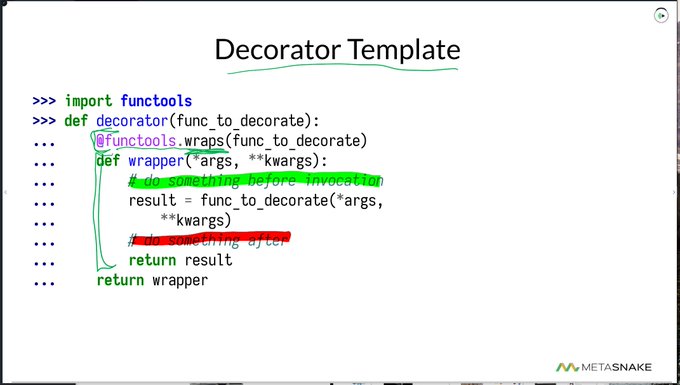
Python 🐍 + Data Science 🚀 trainer @__metasnake__
🦜 Speaker
✍ Author
👨🏫 Instructor (@Stanford)
📣 DM for Sponsorship
4 subscribers
How to get URL link on X (Twitter) App


 However, one common issue with XGBoost is overfitting, leading to poor generalization and inaccurate predictions on new data.
However, one common issue with XGBoost is overfitting, leading to poor generalization and inaccurate predictions on new data.


 In short, decorators allow you to inject orthogonal behavior before or after a function is executed.
In short, decorators allow you to inject orthogonal behavior before or after a function is executed.
 In short, decorators allow you to inject orthogonal behavior before or after a function is executed.
In short, decorators allow you to inject orthogonal behavior before or after a function is executed.
 In short, decorators allow you to inject orthogonal behavior before or after a function is executed.
In short, decorators allow you to inject orthogonal behavior before or after a function is executed.
 The code helps visualize sales data, focusing on different countries, by using Pandas and Matplotlib. It transforms sales data into weekly aggregates, filtering out UK data, and highlights specific countries of interest (in this case, Finland).
The code helps visualize sales data, focusing on different countries, by using Pandas and Matplotlib. It transforms sales data into weekly aggregates, filtering out UK data, and highlights specific countries of interest (in this case, Finland).

 In short, decorators allow you to inject orthogonal behavior before or after a function is executed.
In short, decorators allow you to inject orthogonal behavior before or after a function is executed.
 World times (useful for client work and meetings).
World times (useful for client work and meetings).


